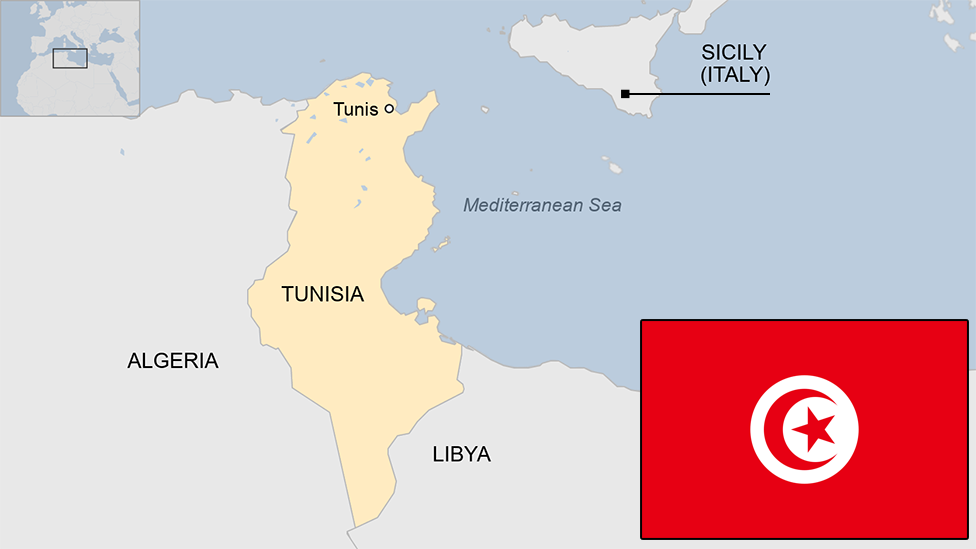The death of a Tunisian poet and the hidden story of Arab mental health
- Published
Tunisian poet Nidhal Gharibi took his life at the age of 32
Just before he killed himself, Nidhal Gharibi posted a message on Facebook: "It is four o'clock in the afternoon of March 27, 2018. I leave you at the age of 32 years, four months and two weeks… I love you all."
Gharibi was a Tunisian poet. He was having trouble getting a job and had moved back in with his parents. But more than that he had lost all hope.
It's hard to know the exact reasons why someone takes their own life. Most experts agree that there is usually more than one factor at work. Gharibi's friends say his depression was exacerbated by the political and economic situation in Tunisia.
A BBC News Arabic survey of the Middle East and North Africa indicates that four in 10 Tunisians are depressed. Only Iraqis are more likely to report feeling depressed across the 10 countries, plus the Palestinian territories, that were surveyed.
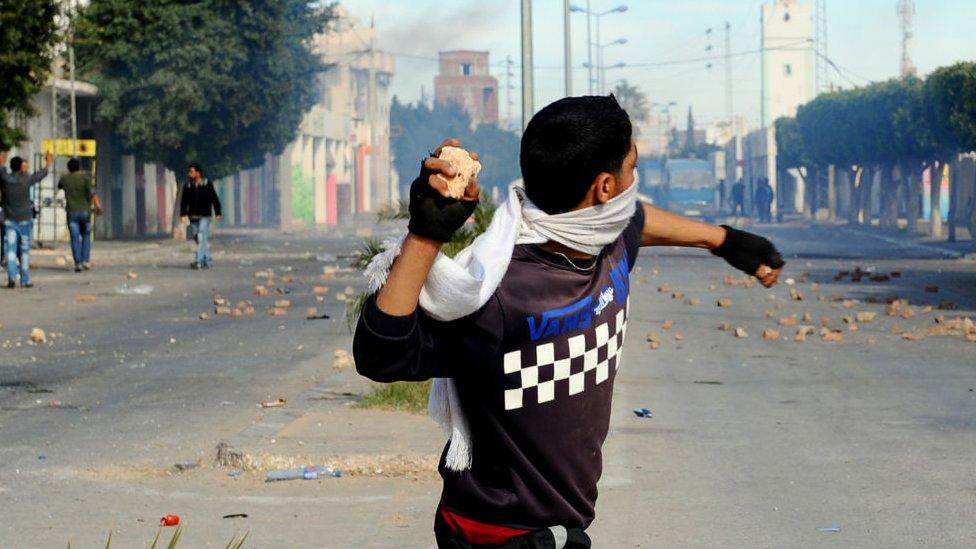
A series of mass demonstrations in 2011 lead to the ousting of Tunisia's long-time President Zine El Abidine Ben Ali
The survey highlights self-reported distress rather than diagnosing people as clinically depressed. But the way the question is asked indicates longstanding despair not just a fleeting sense of being down: "Life is overwhelming at times. In the past six months, how often did you feel so depressed that nothing could cheer you up?" Those answering "often" or "most of the time" were classed as depressed by the Arab Barometer, the research network that carried out the survey.
Mental wellbeing is not a subject much discussed in relation to the Arab world. The region is more commonly seen through clashing geo-political forces - the Israeli-Palestinian conflict, oil, religion, terrorism and war - than the individual and how they see their place in the world.
But the personal and the political collided to kickstart the Arab Spring, which began with a suicide in Tunisia.
The Bouazizi effect
Mohamed Bouazizi, a fruit seller, set himself alight with petrol after being harassed by officials and having his cart confiscated. He died in January 2011 setting off a chain of protests around Tunisia and much of the Arab world.
Since then suicides - often by setting oneself on fire - have increased in Tunisia.
"He [Bouazizi] burnt himself and after that case of suicide, many copied him," says clinical psychologist Aymen Daboussi. "That means taking one's own life as a form of protest became collectively integrated in people's minds".
Suicide deaths and attempts reached a peak of 857 in 2016, according to Najla Arfa at civil society group the Tunisian Forum for Economic and Social Rights.
"After the revolution, problems among young people increased. When it broke out we were happy, we thought the world would change," she says.
But then the mood turned.

Friends of poet Nidhal Gharibi say his ideas still live on
"Around 2013, 2014, the youth began to understand what was happening when older politicians were brought in to govern," she says. "They don't know where they stand in society or in the economy. They feel like they don't belong."
Gharibi was alarmed at what was happening to his country and tried to help young people in his hometown, according to his ex-girlfriend Olfa. His frustration was evident on Facebook. "Life is more than just surviving," reads one post.
"He was unique, a rare person. Some would say that 32 is a very young age," Olfa says. "But I think he came from a different time."
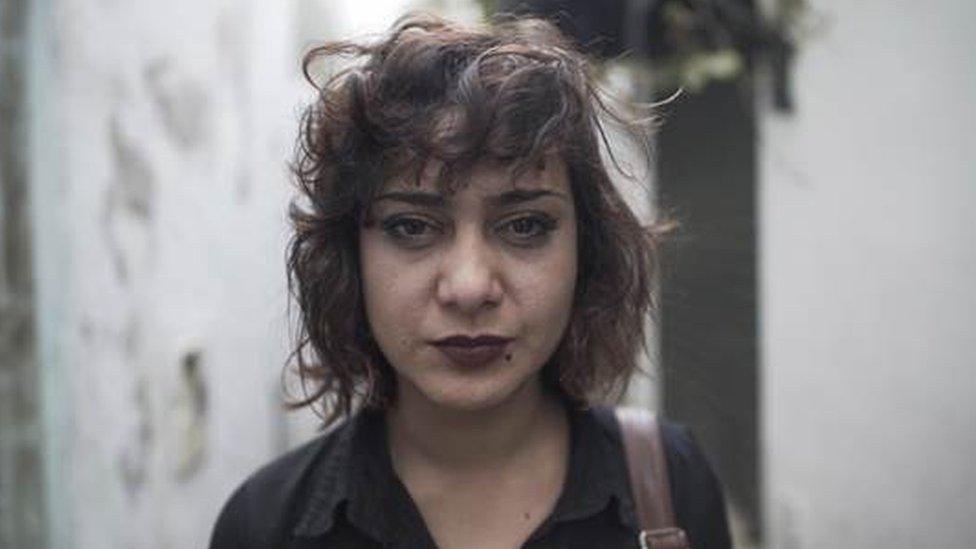
Nidhal Gharibi's ex-girlfriend Olfa says he was "great, truly great"
In his poetry there is a mix of alienation and defiance. "I'm free and alive within you and without you," he writes. "Even if the passion of your love kills me, even in death I would still enjoy you. I'm free and alive within and without you. As long as my name flirts with the tears in your eyes."
The stigma of mental health problems
More than 25,000 people were interviewed by research network the Arab Barometer for the BBC News Arabic survey. Overall, a third of respondents in the region said they were depressed. It sounds a lot. But is this higher than other parts of the world?
It is difficult to say for sure. World Health Organization figures indicate that the Eastern Mediterranean - close to the area covered by the BBC News Arabic survey - has the lowest rate of depression apart from Western Pacific. It also has a very low suicide rate.
But WHO's method uses "years lost to depression". This measures whether you have the support you need to live a normal life as much as the illness itself. And because suicide is considered a sin in Islam there are question marks over how accurate the region's suicide figures are when comparing with the rest of the world.

You may also be interested in:

In the Netherlands about one in three people will be faced with depression or anxiety at some time during their life, according to a national study known as NESDA. In contrast, the BBC News Arabic survey is looking at people's mental wellbeing in the past six months.
"It shows a large proportion of the population in the Middle East have very high levels of distress," says Swaran Singh, head of mental health and wellbeing at the University of Warwick. "By and large these are higher than western averages." Because of the stigma in reporting mental health problems the true figure could be even higher, he says.
Why war and depression are not the same
Almost half (43%) of Iraqi respondents say they are depressed compared to just 15% of Sudanese. What explains why Sudanese - at the time of the survey living under a brutal leader - report levels of depression a third less than Iraqis? And why is Yemen, at war for the past four years, less depressed than relatively stable Jordan and Tunisia?
War and economic collapse do not necessarily cause depression. So says Rasjid Skinner, a lecturer at Cambridge Muslim College who is also visiting professor to the International Islamic University of Islamabad.
Active conflict can actually reduce alienation by giving people a sense of shared purpose, he says. For instance during the Troubles in Northern Ireland suicide rates were lower than in the years following the Good Friday agreement.
"What constitutes wellbeing is knowing you belong," he says. And Sudan is one of the most tribal societies in the Arab world making for strong social bonds, Mr Skinner says.
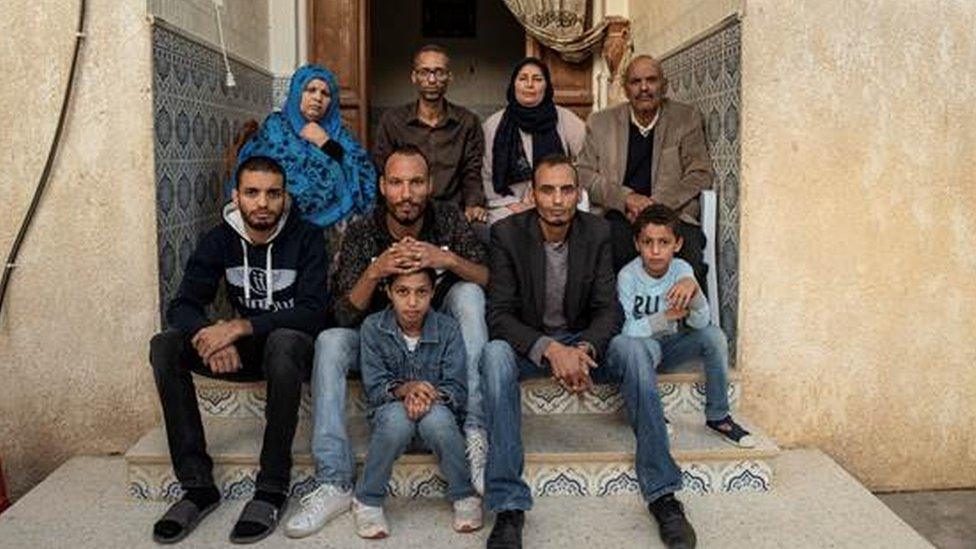
Nidhal Gharibi's family photographed after his death
"What gives you a bad feeling is not being connected and the sense that there's no way out of your difficulties. That's when you get despair." In Sudan there is also a tradition of studying psychology, which may have led to a more enlightened view of mental health issues, he says.
In Tunisia - birthplace of the Arab Spring - hope has faded away. And in Iraq, removing Saddam Hussein - while yielding initial euphoria - seems to have opened a Pandora's box of instability and sectarian violence. "People can cope with things as long as there's hope. When you can't see hope you get despair and it's despair that leads to suicide," Mr Skinner says.
It has been more than a year since Gharibi took his own life. For his friends it has taken time to make sense of it. "I can't say I accepted it but I understood," says Olfa. "Fortunately he didn't die like most people, he left a lot. Ideas don't die, they're still here. He was great, truly great."
If you are struggling to cope, you can call Samaritans free on 116 123 (UK and Ireland) or visit the BBC Action Line website
- Published24 June 2019
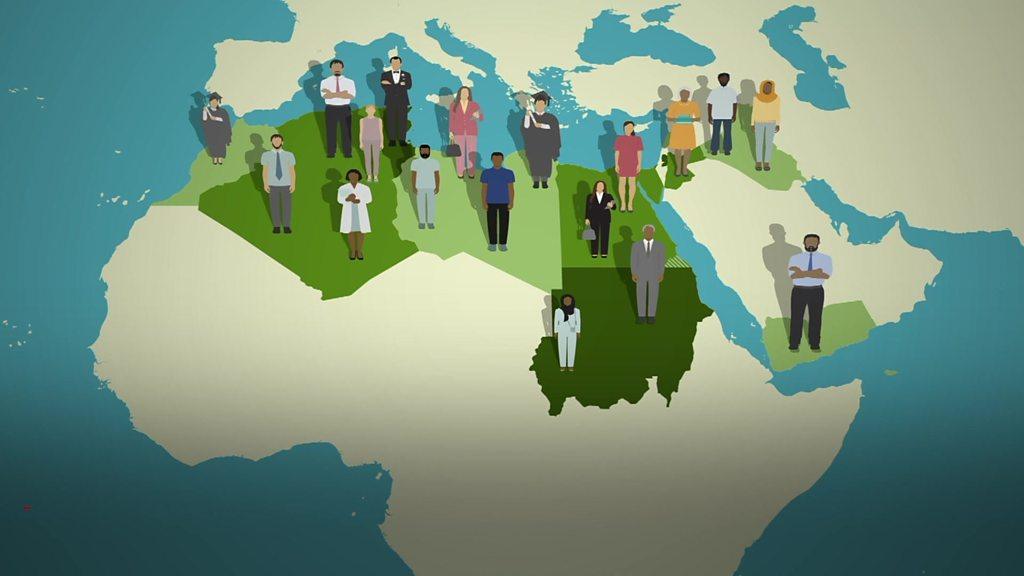
- Published9 October 2024
